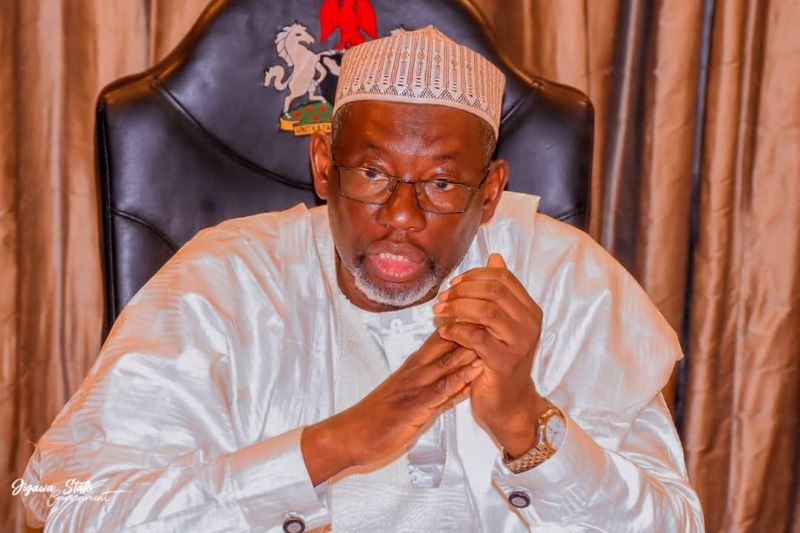GOVERNOR Umar Namadi’s administration in Jigawa State has undertaken significant agricultural reforms aimed at boosting productivity, enhancing food security, and improving the livelihoods of farmers and indigenes of the state at large. These reforms span various aspects of agriculture, from increasing the workforce to innovative cultivation programs and substantial financial subsidies.
A cornerstone of these reforms is the substantial increase in agricultural extension workers. The state has employed 1,476 new agricultural extension workers, in addition to the existing 235, making the increase of about 83.5%. This increase aims to provide more comprehensive support and education to farmers, ensuring they adopt best practices and new technologies to maximize their yields. The presence of these extension workers in the field is crucial for addressing farmers’ challenges and facilitating knowledge transfer.
The Rice Millionaire Program is another significant initiative that underscores the administration’s commitment to youth empowerment and agricultural development. Under this program, about 1,100 hectares of land are allocated for cultivation, with each hectare assigned to a young farmer. The cost of cultivation provided by the state is approximately ₦500,000 per hectare, making it a costless venture for young agripreneurs. This initiative is designed to create job opportunities, reduce youth unemployment, and increase rice production in the state.
Recognizing the importance of fertilizers in boosting crop yields, the government has introduced a fertilizer subsidy program where ₦9000 subsidy per bag is implemented. Farmers in the state purchase fertilizer at ₦16,000 per bag, significantly lower than the then market price ₦25,000. Additionally, 80 trucks totalling to about 48,000 bags of fertilizer are currently being ready for distributed to farmers across the state, ensuring that they have timely access to this crucial input. This subsidy is expected to reduce the cost of production and increase the profitability of farming activities.
In an effort to mitigate the adverse effects of flooding on agriculture, the state government has embarked on a river dredging project. The dredging extends from Dabi in the Rigima local government area to Guri, covering over 100 kilometers. This initiative is expected to reclaim about 3,000 hectares of land for agricultural use, thereby expanding the arable land available to farmers and reducing the risk of crop losses due to flooding.
To streamline agricultural support and ensure that assistance reaches those who need it most, the government has launched a farmer registration initiative. So far, 40,000 farmers have been registered to benefit from various state agricultural support programs. This initiative will help in better planning and distribution of resources, ensuring that the benefits of the government’s reforms are evenly distributed.
The state has also made significant strides in wheat production. A total of 55,000 hectares of land have been cultivated. This is a significant increase from previously less than 15,000 hectares of wheat farms. Farmers paid only ₦35,000 per hectare instead of the usual ₦361,000 due to 50% subsidy by Federal Government and 70% by Jigawa state government. This drastic reduction in cost is intended to encourage more farmers to engage in wheat production, thereby increasing the state’s wheat output and reducing dependence on imports.
Governor Namadi’s administration has forged international collaborations to enhance agricultural productivity. One notable partnership is with Ethiopia in wheat production, aiming to leverage Ethiopia’s experience and expertise in this crop. Additionally, the state has partnered with Embrapa, a Brazilian institution renowned for its work in biotechnology, crop production, livestock improvement, and climate resilience. These collaborations are expected to bring advanced agricultural techniques and innovations to Jigawa State, further boosting its agricultural sector.
The agricultural reforms under Governor Umar Namadi’s administration are comprehensive and multifaceted, addressing key areas such as workforce enhancement, youth empowerment, financial support, flood control, and international collaboration. These initiatives are poised to transform the agricultural landscape of Jigawa State, making it more productive, resilient, and inclusive. As these reforms take root, they hold the promise of significantly improving the livelihoods of farmers and contributing to the state’s overall economic development.
Ibrahim, a lecturer, wrote in from Jigawa and can be reached on madamuwa@yahoo.com.






